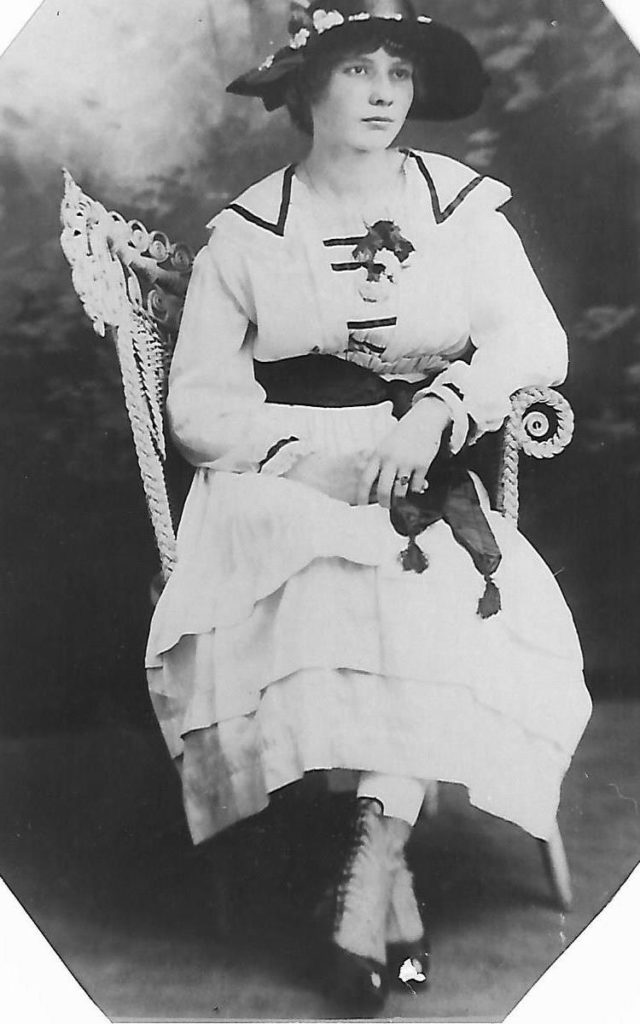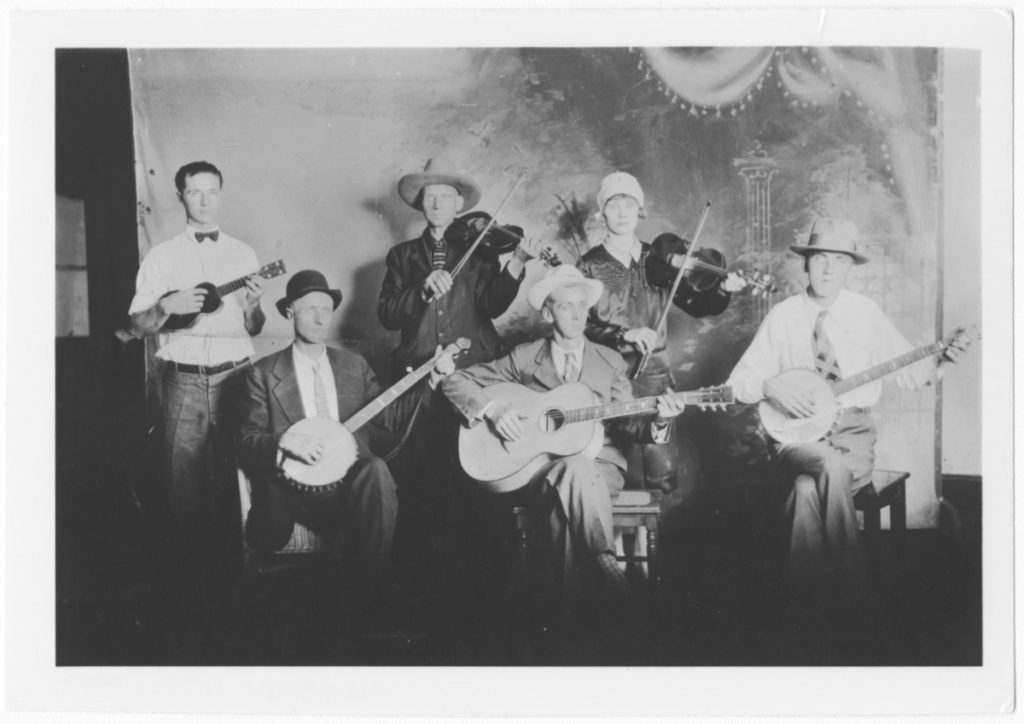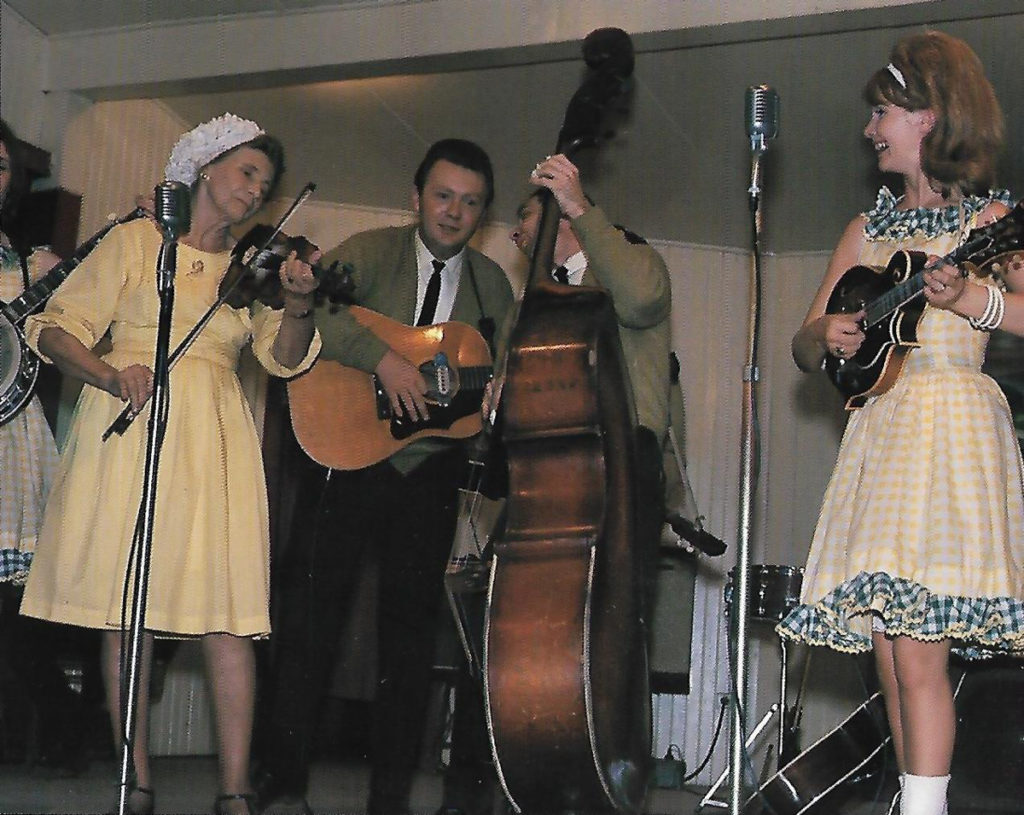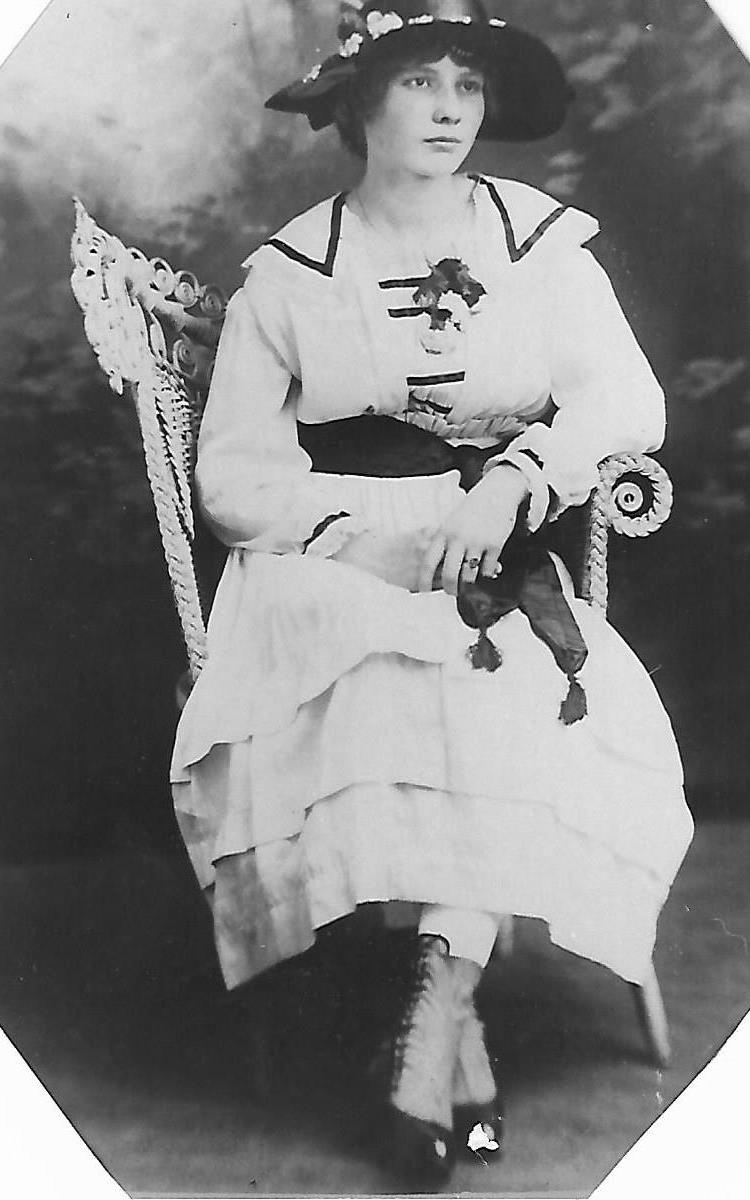The enormous influence of women in country music is evident in every era, most certainly in the early days of country music. Sometimes women’s contributions are overshadowed in the historical record, and the story of the Stoneman family is no different. Without the support and encouragement of Hattie Stoneman, her husband may have never recorded in 1924 and never been instrumental in shaping the dynamic of hillbilly recordings forever afterward. The incredible Hattie Stoneman made an impact on early country music – and she did this all while bearing 23 children, facing sadness and grief due to several miscarriages, stillbirths, and children passing, and finding ways to keep her family going through hardship and poverty.
For most people, the first person they likely think about when they hear the word Stoneman is Ernest “Pop” Stoneman, leader of a host of musicians made up of family and friends, who recorded at the 1927 Bristol Sessions, and then patriarch to his family group who later performed and recorded together, played on the radio, and even had their own musical TV show. But there were two parts to this successful musical equation, and the other one was “Mom”: Hattie Stoneman, wife to “Pop” and mother to their children, all but two of whom played music themselves. As Roni, one of Hattie’s daughters, said: “The first thing you heard was music; you were raised in it. I probably heard her playing music when I was in her body. You’re just a part of music after that.”
Today is Hattie Stoneman’s birthday – she was born on September 28, 1900 in Pipers Gap, Virginia. Hattie came to music through her own family: her mother was descended from pioneer fiddler Green Leonard, and her father Bill Frost was one of the finest fiddle players in Virginia at the time. Frost often played at “frolics,” local gatherings of music and dancing (sometimes participants kept a bit of alcohol in the springhouse water to keep cold, adding to the frolicking). He showed Hattie how to play the fiddle and the banjo, and she became a fine musician herself, often accompanying her father on the banjo. Frost also passed on his love of jokes and humor to Hattie, and her children remember her making them laugh even when they were in deep trouble.
Pop met Hattie when he was just a boy, and she was just a baby – as Pop said, “I heard her give her first cry when she was born.” Their first meeting is related in the story about Pop’s father Elisha Stoneman, a preacher, coming to the Frost house to pray with the family during a difficult birth. He brought along little Ernest, and once the baby was born, Elisha brought her out to where Ernest was waiting for him, putting the baby in his arms and telling him to pray for her to have a long life. Little did he know at the time that it would be a long life together.
Several years later, they met again at a memorial service in a church cemetery – when he saw her again this time, he decided right then and there that he was going to marry that “golden-haired girl.” Music was a central part of their lives – and later their family – and family legend tells us that not only did Pop love Hattie, but he also loved the musical talent she had gained from her father. After a long courtship – and after Pop won out over several suitors – they wed on November 10, 1918.

After their marriage, Hattie often played fiddle in performances with Pop and other musicians. And in 1927 and 1928, she was with him for the Bristol Sessions recordings. At both sessions, she played fiddle and sang on several sides with Pop’s Dixie Mountaineers and The Stoneman Family, along with several sides by Uncle Eck Dunford. Hattie was also featured specifically on the 1927 recording of “What Will I Do, For My Money’s All Gone” (again with Dunford). And “The Spanish Merchant’s Daughter,” recorded at the 1928 Bristol Sessions by The Stoneman Family, was featured on the influential 1952 Anthology of American Folk Music, compiled by Harry Smith.

The Stonemans saw musical success before and immediately after the Bristol Sessions, but the Depression was on the horizon, and they would soon feel the hardship that came to so many during that period. Before the stock market crash of 1929, Ernest and Hattie were living well in Galax, Virginia – they had bought some land in 1927, and he built them a fine home with modern conveniences. Hattie was very much a southern belle, taking care over her appearance and keeping a neat and tidy house. However, by the early 1930s, hard times were firmly upon them – they were facing the illness of their young daughter Nita (she would die soon after at the age of six) and the loss of their house, and Ernest was having to travel far and wide to look for work, leaving Hattie home alone to cope with her family’s needs.
When they lost their house, Hattie moved with their children into her parents’ three-room house for a while, but soon Ernest sent for them to come to Alexandria, Virginia, where he had found work. However, things continued to be hard, with Pop losing his job and Hattie and the children moving back to southwest Virginia for a while. This routine marked much of this period – Ernest finding work, the family moving into a host of different houses, many of which were falling apart and cold, and Hattie sometimes taking the children home to Galax for periods of time. At least back in rural southwest Virginia they could grow some food in the garden, and the vegetables and fruits were often canned up and used to fill the hungry mouths of her children when they were back in northern Virginia and Maryland with Pop.
Indeed, daughter Roni tells stories about how her mother fought hard to keep her family going during the Depression. Once, on a cold winter night when they were living up near Washington, DC, Hattie went out to the local railyard to look for stray coal to fuel their fire at home. Back then, railroad cops – known as railroad bulls – patrolled the tracks and railyards to keep “hobos” out, and a couple of them came across Hattie in her search for coal. Even though it was late at night and she was a woman on her own, she stood up to them, telling them that they could kill her and bury her in the ground if they wanted, but she was taking some coal to bring warmth to her children. The men admired her gumption and saw her real need, and they helped her gather up the coal she needed.
Son Oscar James (known as Jimmy) was born when the family lived up north, one of only a few of the Stoneman children born in a hospital rather than at home. When the nurse brought the baby into Hattie’s room soon after the birth, Hattie exclaimed that “he wasn’t her baby; he didn’t have the Stoneman nose.” The nurse, of course, assumed hysteria, but around the same time a laundry worker in the basement of the hospital heard a baby crying and found Hattie’s baby in a pile of clothes! Jimmy was named after Oscar Anderson, the captain who commanded the fire station across the street from where the Stonemans lived. Even though it was hard to move past her Appalachian independence and pride, Hattie had accepted his help when the family was really struggling — Anderson and his men were kind and helped them out over the years, bringing them food and Christmas presents when they saw the need. As Roni says: “Mommy showed us how to take the hard times and how to be strong in the sad times. She kept us all together.”
Despite all the hardships they faced during the Depression, and how this affected Pop’s musical aspirations, the family still found pleasure in music, and Hattie still played her banjo and her fiddle occasionally with Pop. Later, when things got better and the family developed a music career as The Stoneman Family on radio and television, and in live performances and recordings, she often took a back seat to Pop and her children.
However, in 1947, she stepped back in the spotlight for a talent contest at Constitution Hall. Roni relates how her older brothers didn’t want to play with their father and the rest of the family because they viewed his music as “old-fashioned,” and so they entered the contest on their own. When Pop told Hattie that her sons thought he was outdated and wouldn’t play with him, she pulled out her fiddle and said she’d play with him and that they’d “take that prize from those boys.” She was mad as a hornet and so she fiddled hard and strong, and they won the contest, giving them six months of local TV time, which ultimately led to a host of other opportunities. This story mirrors the tale told of Hattie pushing Pop to go record for the first time back in 1924 and really underlines how influential Hattie was in the Stonemans’ musical success.

There are many more stories of Hattie as mother and performer, and her surviving children, Roni and Donna, look back on those early hard times as rich in love and family, and they view the later musical success as being as much about their mother as their father. And so today, on Hattie’s birthday, let’s celebrate her talent and the contributions to the success of this wonderful musical family made by “The Girl from Galax.”*
René Rodgers is the Curator of Exhibits & Publications at the Birthplace of Country Music Museum. A huge thank you to Roni Stoneman for sharing stories of her mother with me, and to Tom Connor for his help facilitating the interview and images for this blog post.
*”The Girl from Galax,” an instrumental piece written by daughter Donna Stoneman, is a tribute to her mother.


